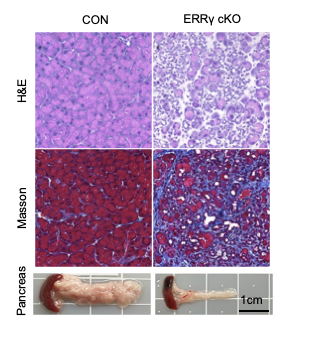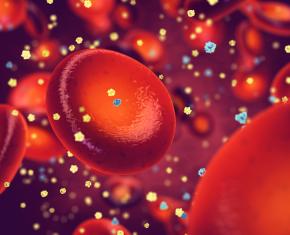
ERRγ deletion causes rapid and progressive pancreatic atrophy
H&E staining (upper panel) and Masson’s trichrome staining (middle panel) of pancreas from control (CON) and ERRγ conditional Knock-out (cKO) cKO mice 7d after the ERR γ deletion.
Gross images of pancreas (lower panel)
The Study: This research study collects blood samples from healthy children and adolescents to support research on MPS (Mucopolysaccharidoses), an inherited disease caused by the body’s inability to produce specific enzymes. The missing or insufficient enzyme prevents cells from recycling waste, resulting in cells not working right throughout the body.
The Lundquist Institute’s investigator Frans Walther, MD, PhD, has received a two-year grant from the Bill & Melinda Gates Foundation in the amount of $471,858.00 to support the development of a synthetic aerosolized lung surfactant and a non-invasive delivery device for use in infant respiratory distress syndrome (RDS), a significant cause of neonatal mortality and morbidity. Newborns experiencing RDS must dramatically increase the effort to take each breath, due to lack of adequate, naturally occurring surfactant production in their lungs.
The Lundquist Institute’s investigator Eiji Yoshihara, Ph.D., has received a five-year $749,995.50 Career Development Award from JDRF (formerly known as Juvenile Diabetes Research Foundation) for his proposed study on how human β cells gain immune evasive function by environmental cues. In pre-clinical humanized models, induction of immune-evasive function in stem cell derived functional human islet-like oganoids has proven to cure diabetes by reducing the risk of graft rejection.



